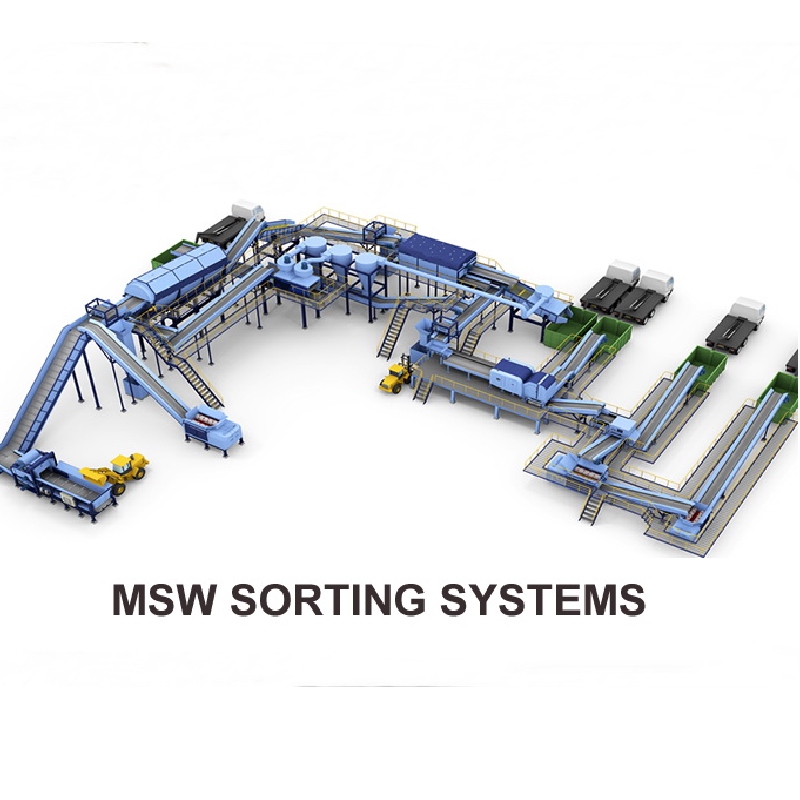

Jul . 29, 2024 03:39 Back to list
The Rise of Metal Chippers in Modern Industry
In recent years, the manufacturing and recycling industries have witnessed a surge in the use of metal chippers, innovative machines designed to process various types of metal scrap efficiently. As industries strive for sustainability and cost-effectiveness, metal chippers have emerged as a vital component in the quest for resource recovery and waste reduction.
Metal chippers serve the primary function of shredding, cutting, or grinding metal scraps into smaller pieces. This process is crucial for several reasons. First, it facilitates easier handling and transportation of metal materials. Smaller pieces take up less space, allowing companies to optimize their storage capabilities and reduce overall freight costs when shipping materials for recycling. Furthermore, various metal types can be processed, including aluminum, steel, copper, and brass, broadening the range of materials that can be recycled.
In addition to logistical benefits, using metal chippers significantly enhances the efficiency of the recycling process. By transforming metal scraps into uniformly sized particles, these machines ensure that the material is more manageable for downstream processes, such as melting and refining. This standardization improves the quality of the recycled metal, making it more desirable for manufacturers looking to create new products. As demand for recycled materials continues to grow in response to environmental concerns, the role of metal chippers in providing high-quality feedstock has never been more critical.

Moreover, the environmental impact of metal chippers cannot be understated. The recycling of metals conserves natural resources, reduces energy consumption compared to virgin metal production, and minimizes landfill waste. By utilizing metal chippers, companies can contribute to a circular economy where resources are reused and recycled, promoting sustainability within their operations. For instance, recycling aluminum saves up to 95% of the energy required to produce aluminum from raw materials, showcasing the significant energy savings achieved through effective metal processing.
As the technology behind metal chippers continues to advance, features such as automation and improved safety measures have been integrated into modern machines. Many machines now come equipped with advanced controls that optimize the shredding process, making it more efficient and reducing wear and tear on the machinery. Additionally, safety features such as automatic shutoff sensors ensure workers are shielded from potential hazards, promoting a safer working environment in facilities that handle large volumes of metal scrap.
The market for metal chippers has also expanded, with manufacturers offering a range of models tailored to different operational needs. From small portable units for on-site processing to larger industrial machines capable of handling substantial quantities of metal, there is a chipper to suit virtually any requirement. This versatility has made it easier for small businesses and larger industrial operations alike to integrate metal chippers into their workflows, further promoting recycling efforts across various sectors.
In conclusion, the rise of metal chippers marks a significant progression in the quest for efficient metal recycling and sustainable manufacturing practices. As industries increasingly recognize the importance of resource recovery, these machines play a pivotal role in transforming how metal scraps are handled and processed. By improving logistics, enhancing recycling efficiency, and promoting environmental stewardship, metal chippers stand out as indispensable tools in both the manufacturing landscape and the broader environmental movement. The ongoing advancements in this technology ensure that its impact will only grow, paving the way for a more sustainable future in metal processing and recycling.
Latest news
The Future of Metal Recycling: Revolutionizing Waste Management
NewsMay.14,2025
Optimizing Waste with Recycling Lines
NewsMay.14,2025
Municipal Solid Waste Sorting Line: Revolutionizing Waste Management
NewsMay.14,2025
Metal Shredders: Essential Tools for Efficient Recycling
NewsMay.14,2025
Maximize Your Profits with a Copper Wire Granulator
NewsMay.14,2025
Home Metal Shredder: A Smart Choice for Your Home Recycling Needs
NewsMay.14,2025